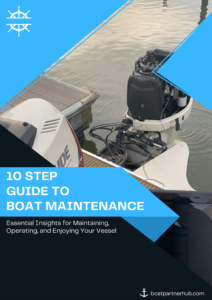Blog
How Can I Maintain And Winterize My Boat For Storage?

Preparing Your Boat for Winter: Essential Maintenance and Winterization Tips
Properly maintaining and winterizing your boat before storage is crucial to ensure its longevity and performance. As the boating season comes to an end, taking the necessary steps to protect your boat during the winter months will help prevent damage caused by freezing temperatures and harsh weather conditions. In this article, we will guide you through essential boat maintenance and winterization tips to safeguard your investment and have your boat ready for the next boating season.
1. Clean and Inspect
Before winterizing your boat, thoroughly clean both the interior and exterior. Remove any debris, dirt, and saltwater residue from the hull, deck, and compartments. Inspect the boat for any signs of damage or wear and address any issues before storing the boat.
2. Change Engine Oil and Filters
Changing the engine oil and filters is essential to prevent contaminants from causing damage during the storage period. Fresh oil and clean filters will also ensure a smoother start-up when you take your boat out of storage.
3. Treat Fuel
Add a fuel stabilizer to the gas tank to prevent fuel from breaking down and causing engine problems during storage. Run the engine for a few minutes after adding the stabilizer to ensure it reaches the fuel lines and engine components.
4. Drain Water Systems
Drain all water systems, including the engine cooling system, bilge pumps, and fresh water tanks. This step is critical to prevent water from freezing and causing damage to the boat’s plumbing and engine.
5. Remove the Battery
Remove the boat’s battery and store it in a dry and cool location. Clean the battery terminals and apply a thin coat of petroleum jelly to prevent corrosion. Consider using a battery tender to maintain the battery’s charge during the winter months.
6. Protect the Engine and Mechanical Components
Lubricate the engine’s moving parts with a rust inhibitor or fogging oil to protect them from moisture and corrosion. Grease fittings and propeller shafts to prevent rust formation.
7. Cover and Protect
Invest in a high-quality boat cover that fits snugly over your boat to protect it from snow, rain, and debris. If storing your boat outdoors, consider using additional supports to prevent water from pooling on the cover.
8. Elevate the Bow
If storing your boat on land, consider elevating the bow slightly to allow water to drain properly. This helps prevent water accumulation, which can lead to damage over time.
9. Store in a Dry Location
Whenever possible, store your boat in a dry and sheltered location, such as a climate-controlled storage facility or a well-ventilated boat garage. This provides optimal protection from the elements and prevents mildew growth.
10. Check Periodically
Even during storage, periodically check on your boat to ensure it remains in good condition. Address any issues promptly to prevent further damage.
Conclusion
Properly maintaining and winterizing your boat is a vital aspect of responsible boat ownership. By following these essential tips, you can protect your boat from the harsh winter elements and ensure it is ready for the next boating season. A well-maintained and winterized boat will provide you with many years of enjoyment on the water and give you peace of mind knowing that your investment is well-protected during the off-season.
FAQs
- Can I winterize my boat myself, or should I hire a professional? If you have experience and knowledge of boat maintenance, you can likely winterize your boat yourself. However, if you’re unsure or have a complex boat, it’s best to seek professional help.
- How often should I check on my boat during storage? Check on your boat at least once a month during storage to ensure it remains in good condition and address any issues promptly.
- Is it necessary to shrink-wrap my boat for winter storage? While shrink-wrapping is not always necessary, it provides an additional layer of protection and helps prevent damage from snow and moisture.
- Can I leave some fuel in the gas tank during storage? It’s best to store your boat with a full gas tank to minimize the risk of condensation forming inside the tank, which can lead to fuel degradation.
- When should I remove the boat cover after winter? Remove the boat cover when the weather improves and you’re ready to prepare your boat for the upcoming boating season.


